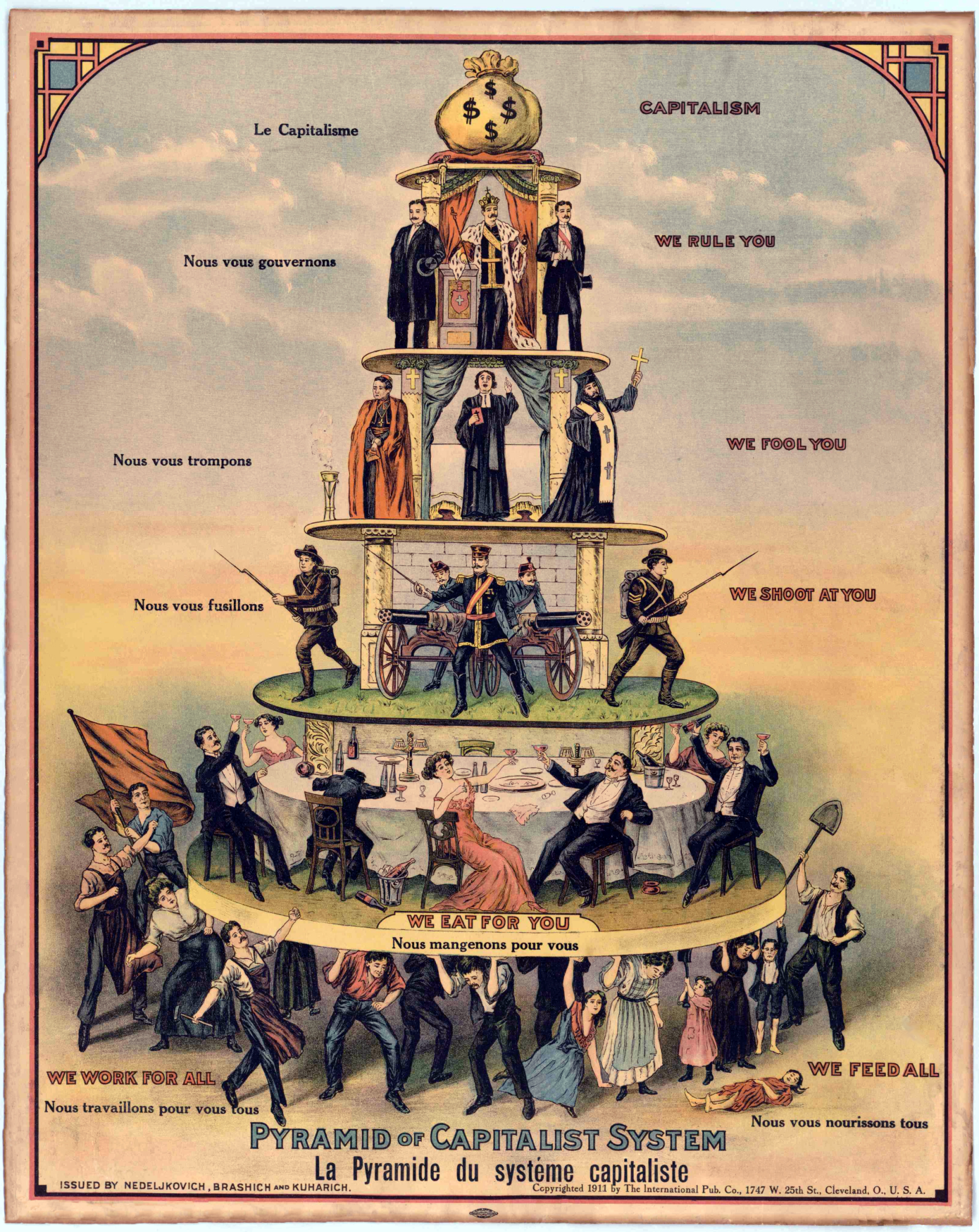(Created page with "'''Class struggle''' refers to the opposition and struggle between opposing classes. It is the manifestation of conflict between classes with opposing fundamental interests an...") |
(Making clear the marxist conception of class struggle) Tag: Visual edit |
||
| (4 intermediate revisions by 2 users not shown) | |||
| Line 1: | Line 1: | ||
'''Class struggle''' refers to the opposition and struggle between opposing | [[File:Pyramid of Capitalist System.png|thumb|283x283px|Class struggle is depicted amongst the lower section of the depiction "[[Pyramid of Capitalist System]]" by the [[IWW]]]] | ||
'''Class struggle''' refers to the opposition and struggle between opposing [[social class]]es. It is the manifestation their opposing fundamental interests and is the basic means of resolving the contradiction between an existing class structure and the developing [[forces of production]] and [[relations of production]]. | |||
The essence of class conflict is the opposition between the economic status and material interests of different classes. All class struggles occur on the basis of opposing and conflicting material interests, that is, economic interests, and are ultimately centered around material interests. | The essence of class conflict is the opposition between the economic status and material interests of different classes. All class struggles occur on the basis of opposing and conflicting material interests, that is, economic interests, and are ultimately centered around material interests. | ||
In a class society, the class struggle first takes place between the two basic classes in each social form, such as the struggle between the peasantry and the landlord class in [[feudalism|feudal]] society, and the struggle between the [[proletariat]] and the [[bourgeoisie]] in capitalist society. | In a class society, the class struggle first takes place between the two basic classes in each social form, such as the struggle between the peasantry and the landlord class in [[feudalism|feudal]] society, and the struggle between the [[proletariat]] and the [[bourgeoisie]] in capitalist society. | ||
Though it is a common misconception, the doctrine of class struggle is not an original [[Marxist]] idea. [[Vladimir Lenin]] in the [[State & Revolution]] made it clear that class struggle has existed before [[Karl Marx|Marx]]. What makes class struggle inherently Marxist is when the extension of this recognition is made to the [[dictatorship of the proletariat]]. | |||
[[Category:Marxist terminology]] | |||
Latest revision as of 06:51, 10 October 2023

Class struggle refers to the opposition and struggle between opposing social classes. It is the manifestation their opposing fundamental interests and is the basic means of resolving the contradiction between an existing class structure and the developing forces of production and relations of production.
The essence of class conflict is the opposition between the economic status and material interests of different classes. All class struggles occur on the basis of opposing and conflicting material interests, that is, economic interests, and are ultimately centered around material interests.
In a class society, the class struggle first takes place between the two basic classes in each social form, such as the struggle between the peasantry and the landlord class in feudal society, and the struggle between the proletariat and the bourgeoisie in capitalist society.
Though it is a common misconception, the doctrine of class struggle is not an original Marxist idea. Vladimir Lenin in the State & Revolution made it clear that class struggle has existed before Marx. What makes class struggle inherently Marxist is when the extension of this recognition is made to the dictatorship of the proletariat.